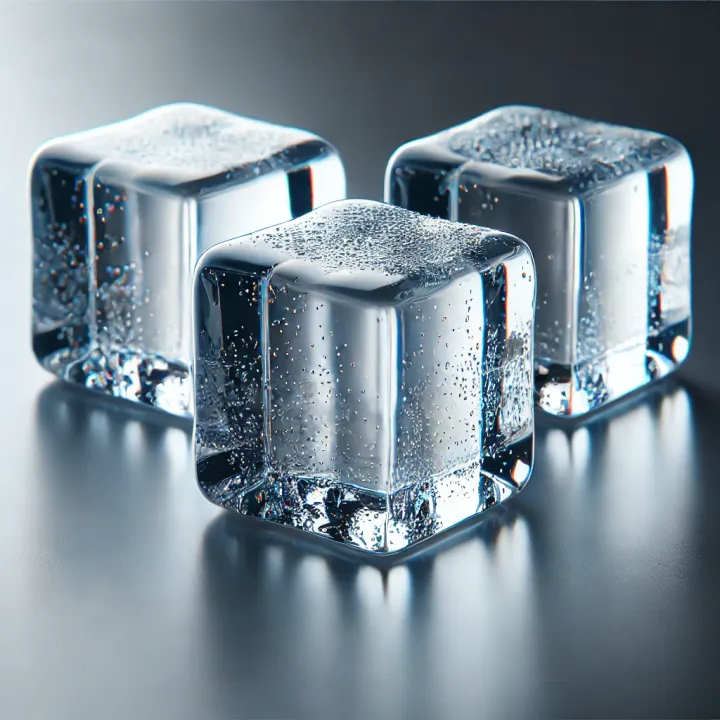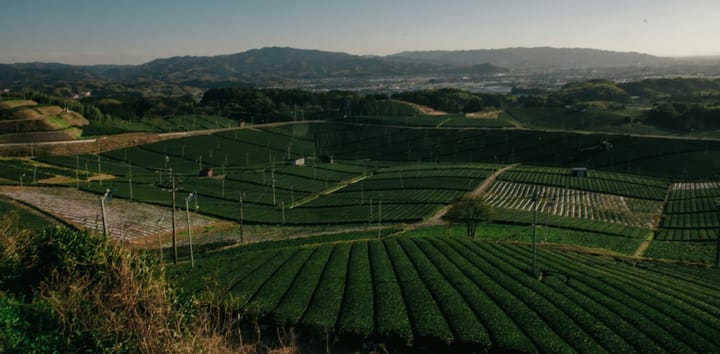The Most Expensive Coffees in the World
Dive deep into the world of premium coffees. From their volcanic origins to the expert touch of a barista, uncover the essence of what defines a truly exceptional brew.
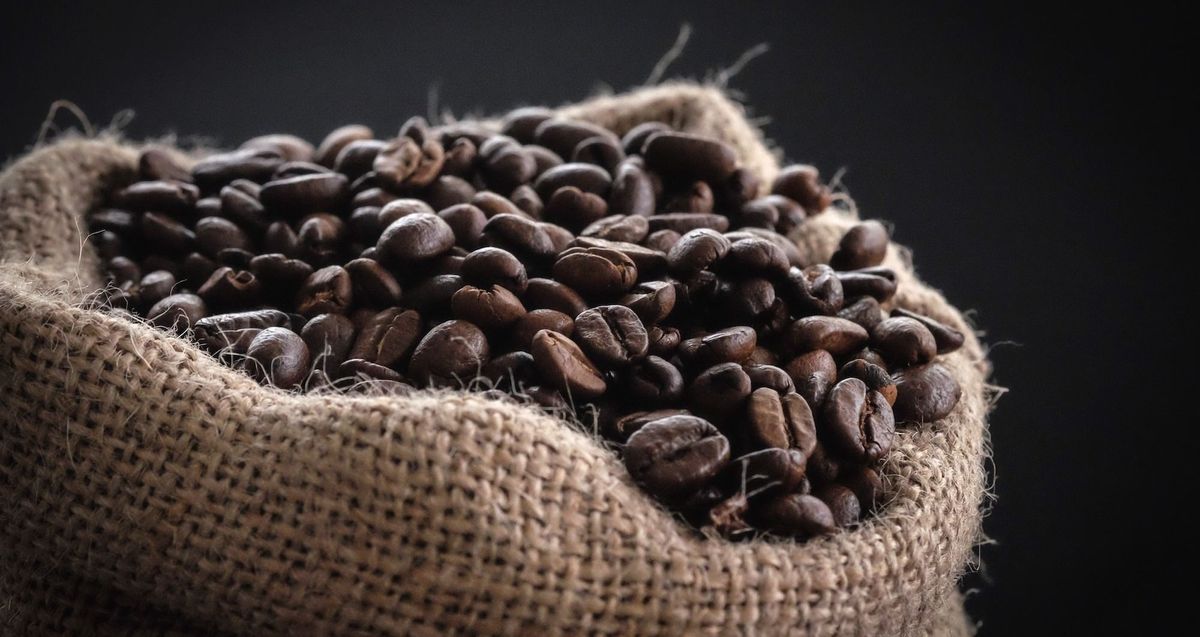
While the everyday coffee serves its purpose in kickstarting our mornings, true connoisseurs recognize the allure of indulging in the world's most luxurious brews.
These elite coffees tantalize with their intricate taste profiles, whisking you away on an imaginary journey to distant shores and lush tropics.
What makes these coffees so exquisite? Many are cultivated at lofty heights, rooted in mineral-abundant volcanic terrain or nestled in deep, fertile sandy soils, setting the stage for unparalleled quality.
However, the journey from bean to cup involves numerous meticulous steps: impeccable farming, precise roasting, appropriate aging, and, finally, the skilled hands of a barista who grinds and brews to perfection.
Join us as we explore the captivating tales of these elite beans and unveil the world's most premium coffees.
Note: While Kopi Luwak is known for its flavor and price, we've left it off our list due to potential ethical concerns regarding civet treatment in its production.
How Much Would You Be Willing to Pay For a Cup of Coffee?
According to CBS News, most Americans are comfortable shelling out $1 to $5 per cup. However, there's a significant number, about 16%, who don't mind paying more than $5.
Especially among those who frequently purchase from coffee shops, nearly 1 in 3 are willing to pay a premium for their brew. This suggests that a good portion of coffee shop-goers in America have a taste for the pricier cups.
Without further ado, let's look into our list of the world's most expensive coffees.
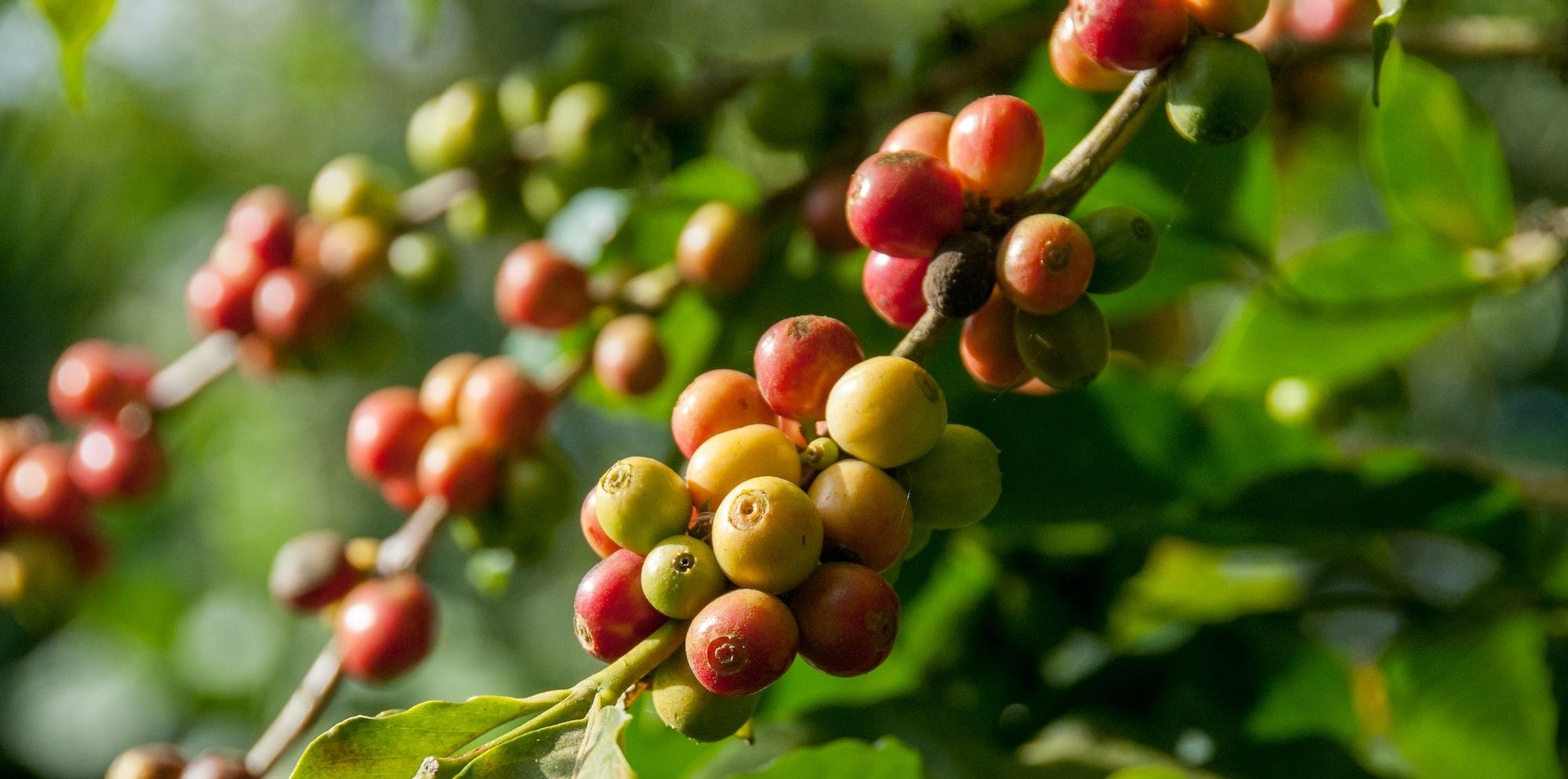
Panama Geisha/Gesha Coffee - $6,000 / pound
In the early 21st century, Geisha coffee from Panama gained prominence. Its breakthrough came in 2004 when Daniel Peterson of Hacienda La Esmeralda won the esteemed Best of Panama contest with it.
This win and its distinct taste, paired with cultivation challenges, catapulted Geisha to the top tier of the world's most sought-after and expensive coffees.
Origin: Boquete, Panama. Specifically, the slopes of Mount Barú.
Why is it so expensive: Panama's Geisha coffee, prominently grown at Elida Estate within a national park, stands out for its unique taste and rigorous cultivation.
Grown above 2,000 MASL, the demanding high-altitude requires precise harvesting. In 2022, just 7lbs of the Geisha Aguacatillo was picked from their top lot.
The beans undergo honey processing, named for the mucilage left during drying, which enhances flavor. Its global reputation has grown, with the Specialty Coffee Association consistently rating it over 95/100.
At the "Best of Panama", roastmaster Michael Perry awarded the Elida Geisha Natural an impressive 97, cementing Geisha's position as a coffee gold standard.
In numerous international coffee contests, Geisha consistently stands out as the pinnacle of coffee excellence.
Flavor Profile: It is known for its pronounced jasmine aroma, coupled with flavors of bergamot, tropical fruits, and a lingering clarity reminiscent of fine teas
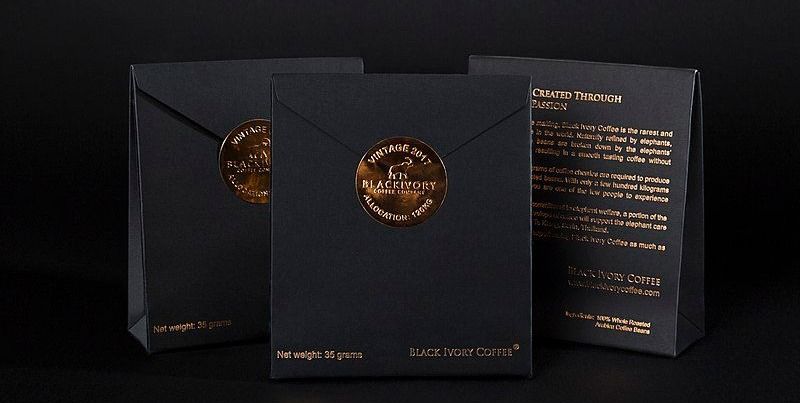
Black Ivory Coffee - $1,500 / pound
Black Ivory Coffee, originating from elephant dung, has surpassed the fame of Kopi Luwak. Elephants consume the coffee cherries, and after passing through their digestive system, the beans are extracted, cleaned, and processed.
This unique fermentation inside the elephant reduces the coffee's bitterness, yielding a smooth, luxurious cup.
The combination of its labor-intensive production, limited availability, and unique flavor profile makes it highly sought after worldwide.
Unlike civets used for Kopi Luwak, these elephants benefit from superior living conditions, adding to the coffee's allure.
Origin: Golden Triangle, Thailand. This region borders Thailand, Myanmar, and Laos.
Why is it expensive: Produced in a unique manner. In the village of Surin, Thailand, Black Ivory Coffee is crafted through a unique collaboration with elephants.
Expert-selected Thai Arabica cherries, grown at 1500 meters, are fed to elephants mixed with foods like bananas and tamarind. Inside the elephant, enzymes remove the cherries' bitterness during a 12 to 72-hour digestion process.
The production ratio is striking: 33 kilograms of cherries yield just 1 kilogram of Black Ivory Coffee, due to damage or loss during the process.
Post-digestion, gatherers retrieve the cherries. Local students then clean and sun-dry them. The finest cherries are handpicked, roasted in limited batches, and then packaged for international distribution.
Flavor Profile: The resulting coffee is smooth with notes of chocolate, tamarind, spice, and sometimes even red cherry.
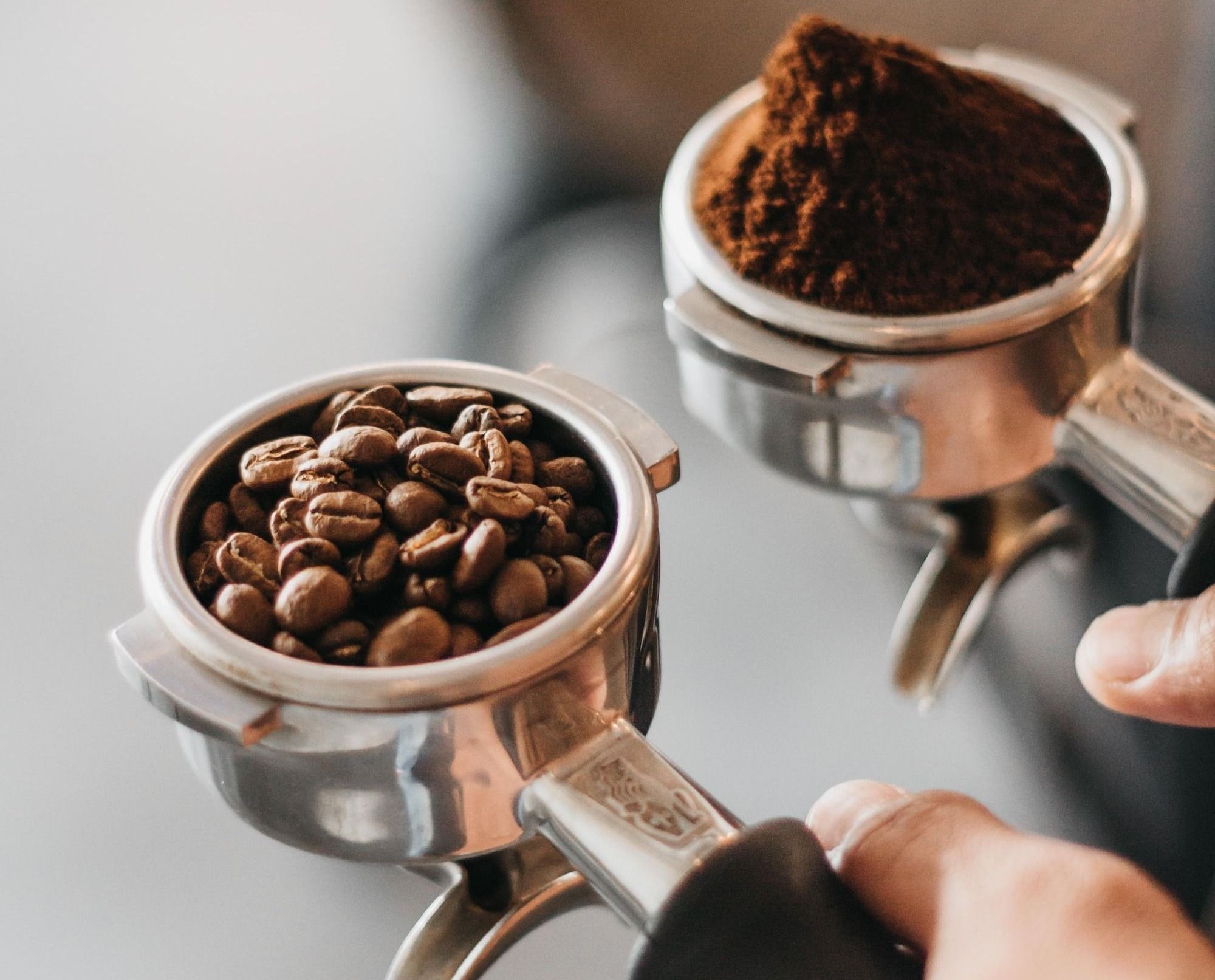
Ospina Dynasty Coffee - $1,400 / pound
With a rich history dating back to 1835, the Ospina family stands as stalwarts in Colombian coffee cultivation.
Two daring brothers, after their prison escape, founded the plantation, later gaining the endorsement of three former Colombian presidents.
Origin: Andes Mountains, Antioquia region, Colombia.
Why is it expensive: Cultivated between elevations of 7,700 to 7,900 feet in Antioquia's volcanic terrain, Ospina coffee is prized for its layered flavors.
Their unique beans, from the Colombian Arabica Typica trees, flourish under the shade of the rainforest. Each tree, distinctively planted in volcanic ash, deepens the coffee's signature profile.
Their premium Ospina Grand Cru Classé fetches a remarkable $1,400 per pound, underscoring its exceptional quality, while other revered varieties are priced around $120 per pound.
Guided by the fifth generation, the Ospina heritage thrives. Their commitment to sustainable farming and Fair Trade showcases a dedication to excellence and community welfare.
Flavor Profile: The coffee is celebrated for its fruity undertones, hints of chocolate and macadamia, nutty flavors, robust caramel notes, and a smooth finish.
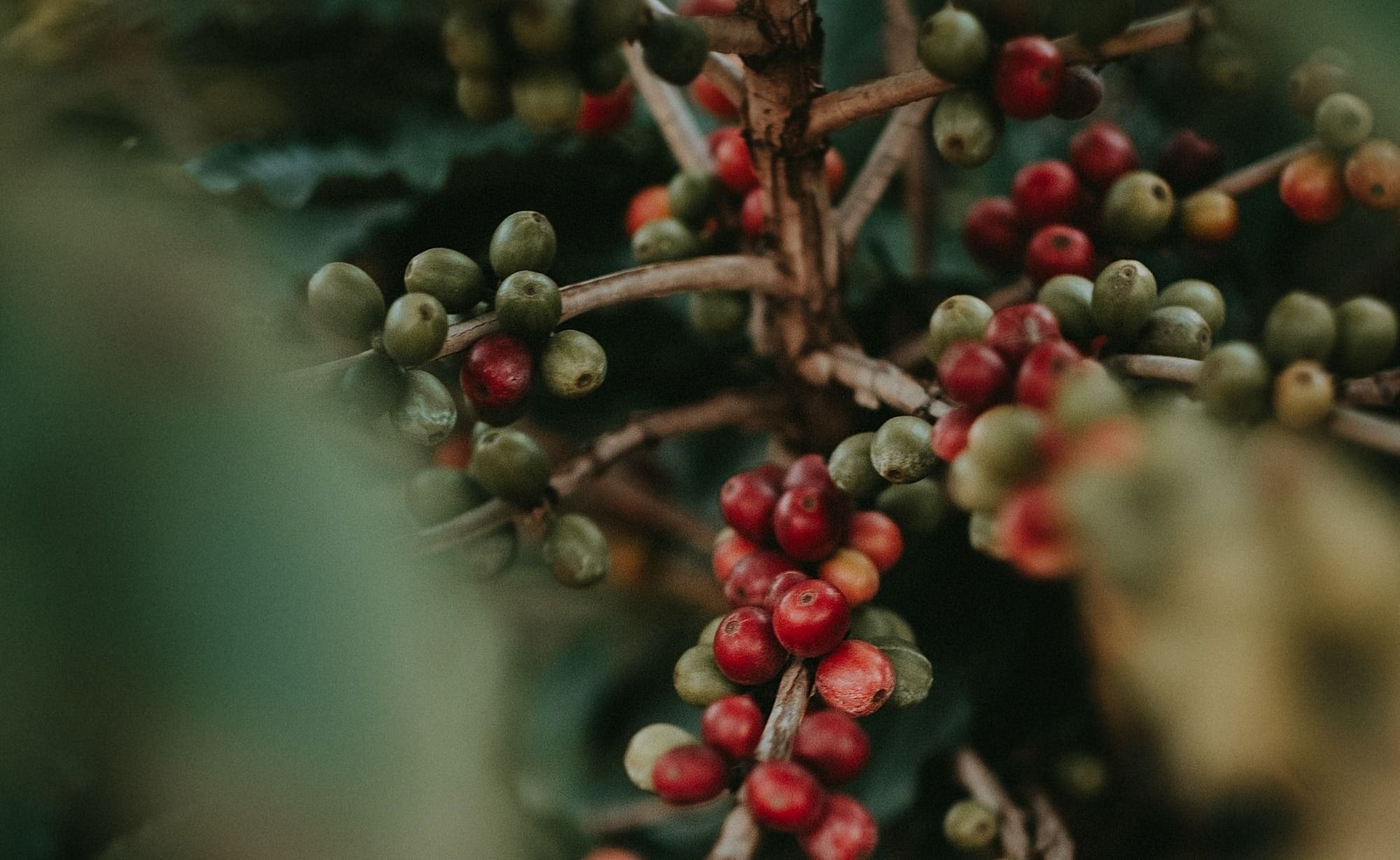
Finca El Injerto coffee - $600 / pound
Finca El Injerto, steered by a father-son team, exemplifies sustainable coffee farming in Guatemala.
They've pioneered eco-initiatives, from hydropower to education, and their coffee, a top-tier favorite, is cultivated on the nation's first carbon-neutral estate.
Origin: Huehuetenango region, Guatemala. Specifically, the small town of La Libertad.
Why is it expensive: Their signature "peaberry" beans, coupled with multiple accolades from Guatemala's Cup of Excellence, speak to their unmatched quality.
These beans undergo a unique double-wash, setting their coffee apart. Price-wise, it ranges from $60 for regular to a notable $600 for ultra curated beans.
Situated between 1500 to 1920 meters elevation, El Injerto's plantations boast optimal conditions: mineral-rich soil, 22ºC temperatures, and consistent rainfall.
The Natural Process they employ, common in Africa and Brazil, ensures a distinguished, clean cup.
Flavor Profile: Displaying a wide range of flavors, from dark fruit and citrus to floral hints and a pronounced sweetness, all encapsulated in a silky body.
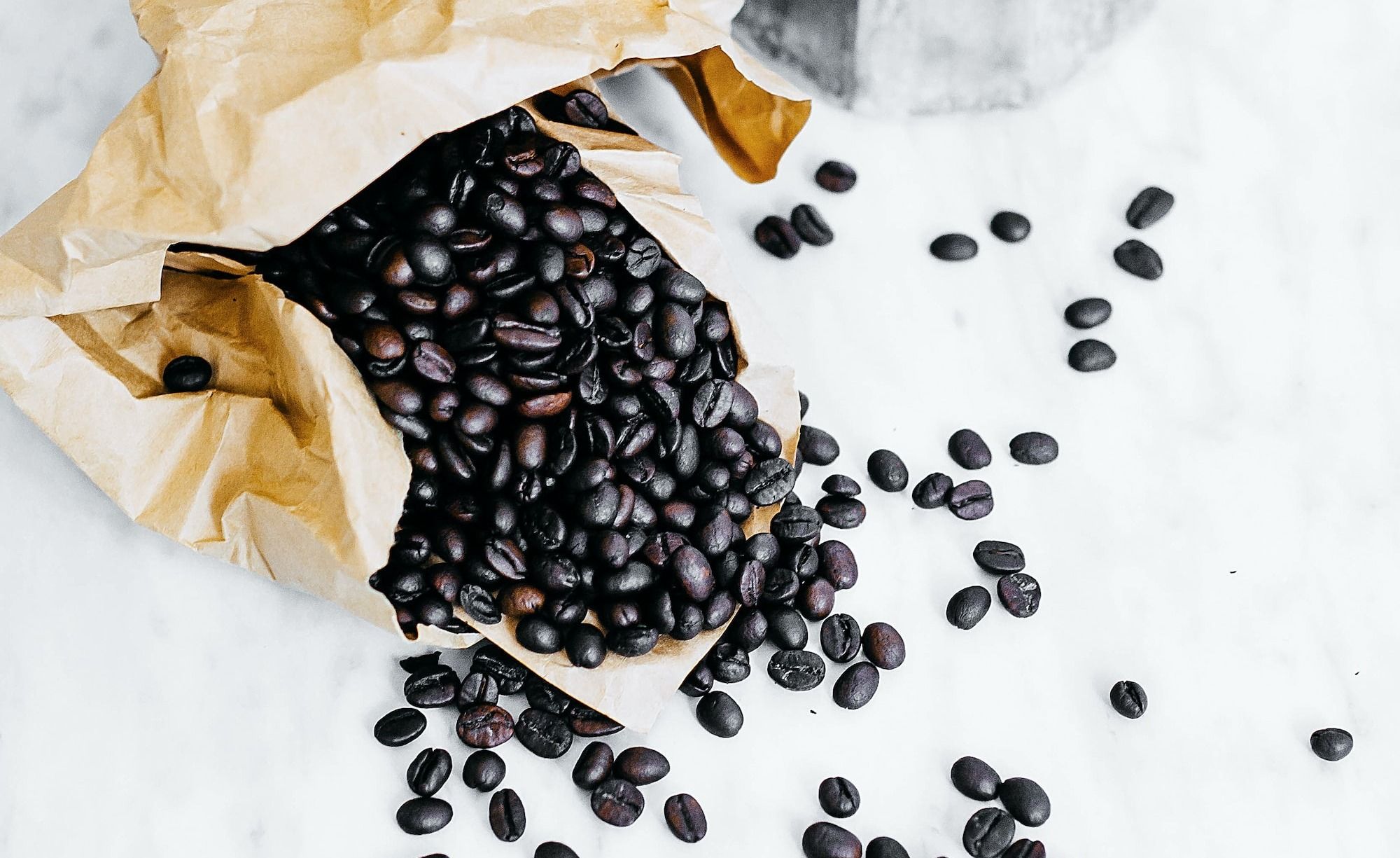
St. Helena Coffee - $145 / pound
St. Helena's isolation increases the cost of its distinguished coffee due to complex cultivation and shipping logistics.
Its coffee legacy is rooted in seeds introduced by the East India Company in the 18th century. Napoleon Bonaparte's admiration for this brew during his exile amplified its historic value.
Origin: St. Helena Island, South Atlantic Ocean.
Why is it expensive: The esteemed French general, Napoleon, had a fondness for Saint Helena coffee, cultivated on an island off Africa. In 2019, this unique Arabica Coffee was marked endangered by the IUCN.
The Green Tipped Bourbon Arabica, a delicate bean, demands meticulous processing to retain its signature taste, earning it 2013's "Coffee Of The Year" by Spilling The Beans.
It's primarily grown at Rosemary Gate Plantation by the Boltons and 2 Sandy Bay Plantations under Solomon & Company.
The beans undergo a five-day soaking process to remove the mucilage, enriching the bean's flavor. Once sun-dried, the parchment skin is removed. Today, this specific Arabica variant from St. Helena remains unparalleled in commercial farming.
Flavor Profile: With a unique, wine-like quality, the coffee presents a complex flavor profile, from citrus and caramel to subtle hints of spices, carried by a bright and lively acidity.
In Conclusion
Crafting the perfect coffee demands unparalleled dedication. Top-tier producers embrace challenges, from seeking rich volcanic soils to using unconventional techniques like sorting beans from animal excrement.
Their immense passion ensures each sip offers a unique flavor and energy burst. Should you try it? Absolutely! Diving into the world's finest coffees is an exploration of taste and craftsmanship. It's more than just a drink; it's an experience. And trust us, it's worth every sip.

